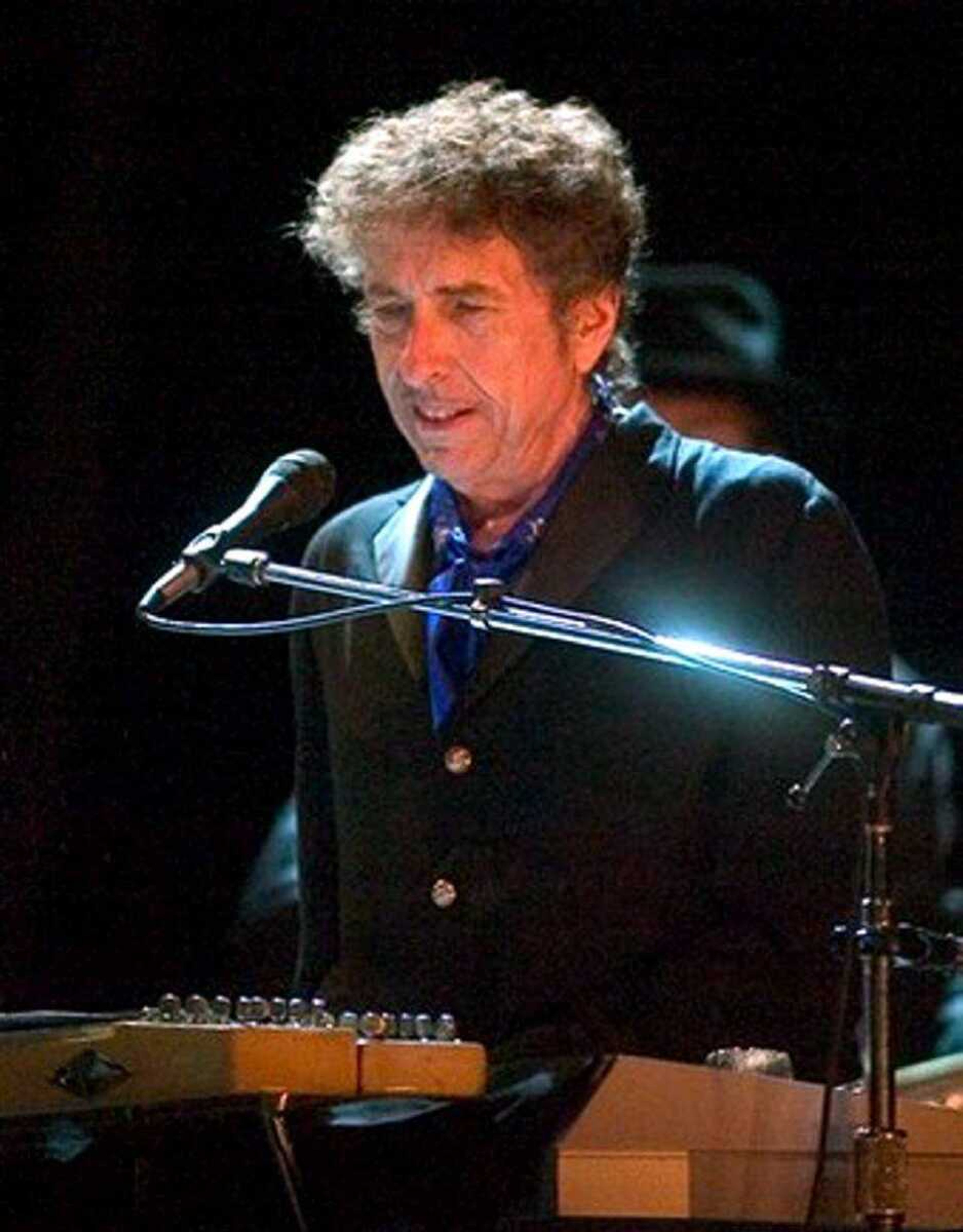KRCU begins 4-part series on Bob Dylan
The new movie "I'm Not Here" attempts a kind of psychological tour of Bob Dylan's life, myth and music in which Rimbaud, Billy the Kid and Woody Guthrie make appearances. Dylan also is one of the musicians parodied in the new comedy "Walk Hard: The Dewey Cox Story."...
The new movie "I'm Not Here" attempts a kind of psychological tour of Bob Dylan's life, myth and music in which Rimbaud, Billy the Kid and Woody Guthrie make appearances.
Dylan also is one of the musicians parodied in the new comedy "Walk Hard: The Dewey Cox Story."
"Bob Dylan: The Never-Ending Star," a book chronicling the musician's impact, has just been published.
Despite the new movie's title, Dylan is everywhere these days.
A four-part series titled "Dylan" begins airing this morning on Southeast Public Radio 90.9 FM. Patti Smith hosts each hourlong episode composed of songs, stories and interviews with Dylan associates, journalists and singer-songwriters he has influenced. The other parts will be aired on subsequent Sundays.
Southeast sociology professor Dr. Peter Hirschburg teaches a fall semester class called "Rock 'n' Roll and Revolution." The course examines the recurring notion that music is dangerous. "When teenagers like something that anybody else doesn't understand it's seen as dangerous," Hirschburg said.
He doesn't view Dylan's music as particularly revolutionary, pointing out he was heavily influenced by Woody Guthrie. But though Dylan has recorded few hits -- only "Like a Rolling Stone," "Rainy Day Women #12 & 35" and "Positively 4th Street" squeezed into the Top 10 -- he has had a tremendous influence on other musicians, Hirschburg said. The development of folk-rock music in the mid-1960s and his constant reinvention of himself are two of his legacies, Hirschburg said.
Few college students today know Dylan's music, he said. "They're much more aware of the Beatles."
Daron Bickel, station manager for the campus station Rage 103.7 KDMC, said college students "have a hard time trying to relate to him." Most students who listen to the station's urban and alternative formats are looking for new music for their iPods, Bickel said.
A 2001 Dylan performance at the Show Me Center drew 2,800 people.
KRCU has been trying to broaden its musical diversity with recent programs on Elvis, Johnny Cash and Waylon Jennings. KRCU station manager Dan Woods said. Programs about Frank Sinatra and Tony Bennett are under consideration. These are the kind of programming KRCU can do that other stations can't, he said. "No one else is going to do a four-part series on Bob Dylan."
Programs in the series with descriptions provided by the producer are:
- "Blowin' in the Wind," 9 a.m. today
Dylan moved to New York City in 1961, and within two years he was being lauded as the "voice of a generation." The young troubadour wasn't so interested in being that, but Dylan's meteoric rise to fame was no fluke. In his songs, Dylan captured the social consciousness of the time and took it beyond as he rejected the role of protest singer. Listeners will hear about Dylan's early years as he moved from folk singer-songwriter to rock and roll star.
- "Like a Rolling Stone," 9 a.m. Jan. 13
With the mantle of folk protest singer off his shoulders, Dylan launched into a flurry of creativity in the mid-1960s. His sound exploded with electric instruments and a blend of folk, rock, blues and gospel influences. By the late '60s, Dylan was singing country music like he had grown up in Nashville. His lyrics still commented on the world, but through a wider lens that mixed personal reflection with mystical and surreal images. Listeners will hear how Dylan found his voice and how that changed rock and roll for a long time to come.
- "Shelter from the Storm," 9 a.m. Jan. 20
In the 1970s and 1980s, Dylan continued to expand his artistic world. His songs ran the gamut, from personal stories to Homeric epics and everything in between. By the late 1970s, Dylan became a born-again Christian, and for several years he sang only religious material. By the late 1980s, Dylan had supported Live Aid, Farm Aid and joined the Traveling Wilburys. The show will play highlights from this period of dizzying artistic and personal growth.
- "Oh Mercy," 9 a.m. Jan. 27
Dylan has always been a unique American voice, and that's most evident in the music he has made since the late 1980s. Returning to his roots in folk and blues, Dylan has fine-tuned American music with the mind of a poet and the bravado of a rock and roller. This final installment will show the maturity and grace of Dylan's most recent artistic ideas.
sblackwell@semissourian.com
335-6611, extension 137
Connect with the Southeast Missourian Newsroom:
For corrections to this story or other insights for the editor, click here. To submit a letter to the editor, click here. To learn about the Southeast Missourian’s AI Policy, click here.











